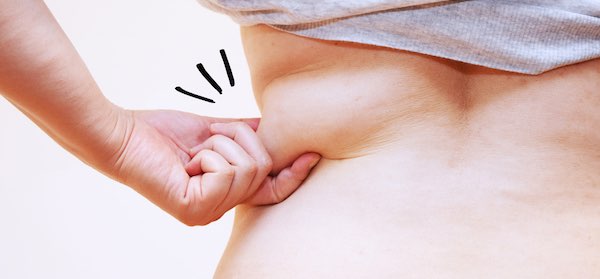When it comes to losing weight, many of us think about ‘burning fat’. However, there’s more to it than that. To understand weight loss, we need to learn how fat works.
Fat, as we now know, is integral to good health; it is part of our cell membranes, helps us store energy and vitamins and produces various hormones that are essential to bodily functions.
According to research by molecular biologist Kirsty Spalding conducted at the Karolinska Institute in Sweden, adults keep the same number of fat cells throughout their lives.
That’s right – regardless of how much weight you lose or gain, your fat cells stay the same. While some cells may die, our bodies replace them. Though your fat cells may shrink or expand as your body does, you will always have the same number.
“It’s as if we’re programmed, in a way, to have this number of fat cells,” Spalding said.
This isn’t a bad thing. Without getting into the nitty gritty science of it all, when we eat fat, some of it is used as energy, while any leftover fat becomes part of our bodies.
Simply put, when we gain weight, our fat cells grow in size and when we lose weight, our fat cells shrink but they never actually disappear. Scientists don’t know why some people have more fat cells than others, but two people with similar bodies can have very different numbers of fat cells.
What’s the key to shedding weight and keeping it off?
You’ve heard it before: the trick to losing weight is to only eat as much as much as your body requires so that it doesn’t store the extra energy. In other words, making sure you’re using more energy than you’re consuming.
Keeping the weight off once you’ve lost it is a different matter again. Your fat cells will have a tendency to want to return to their larger size.
According to Spalding, our fat cells produce a hormone called leptin, which signals to our brains when to stop eating. As fat cells shrink, they produce less of this hormone. This means we have to be mindful about eating less if we want to prevent fat cells returning to what Spalding calls their “happy size”.
“If you can’t get rid of these cells, you’re just going to have these cells sitting there, constantly saying they want to be bigger,” she said.
Most of the time, losing weight simply means getting used to eating less. If you want to maintain your weight loss, you should focus on eating naturally occurring foods, such as grains, fruits, vegetables, nuts, seeds and beans. For most people, a diet including fat, carbohydrates and protein is the healthiest choice.
Related articles:
Weight-loss secrets of women
Five foods that help you to lose weight
How to kickstart your exercise

